It’s all in the name
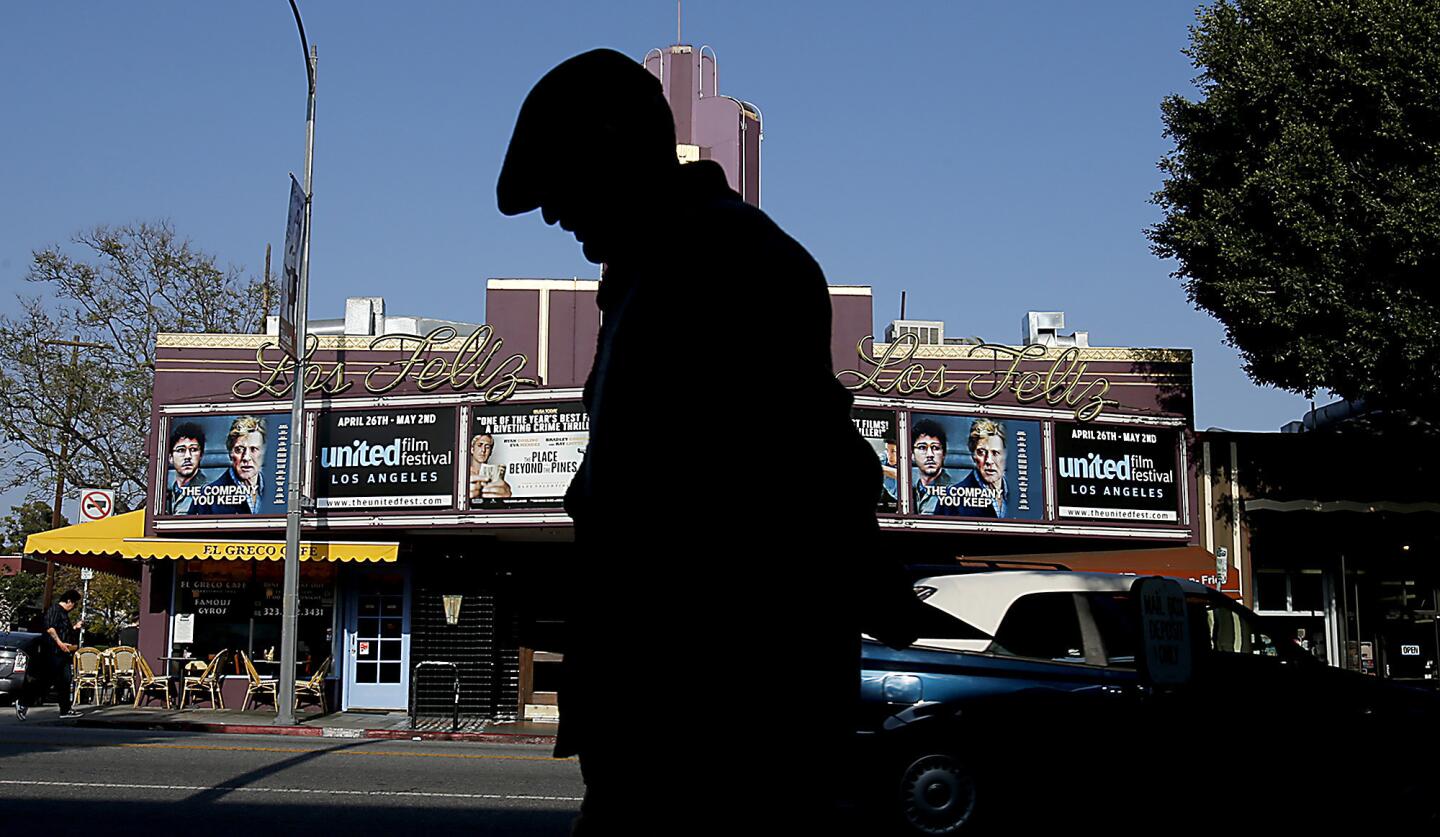
A pedestrian walks past the Los Feliz Theater on Vermont Avenue, a landmark of the Los Feliz neighborhood of Los Angeles. Today, no one can seem to agree if using the Spanish pronunciation for the area is respectful -- or pretentious. (Luis Sinco / Los Angeles Times)
Los FEE-lus or Los Fey-LEASE? The English-speaking people who eventually developed the region love the romantic feel of the Spanish place names but brought a decidedly Midwestern way of pronouncing them.
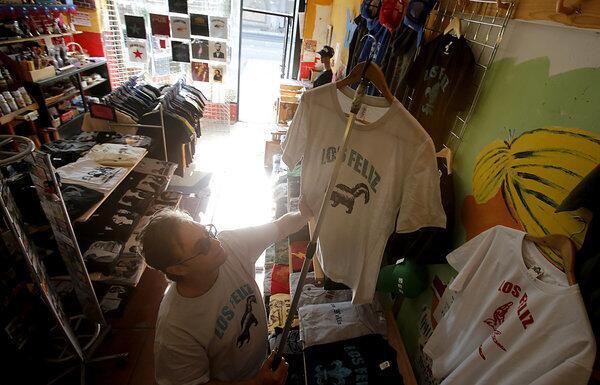
Bill Wyatt hangs “Los Feliz” T-shirts at his shop, Y-Que Trading Post, in Los Feliz. On an online message board called “Southern California-isms,” a former Los Feliz resident described an urge to slap everyone who uses the Spanish pronunciation, hoping to “bring them back to reality.” (Luis Sinco / Los Angeles Times)
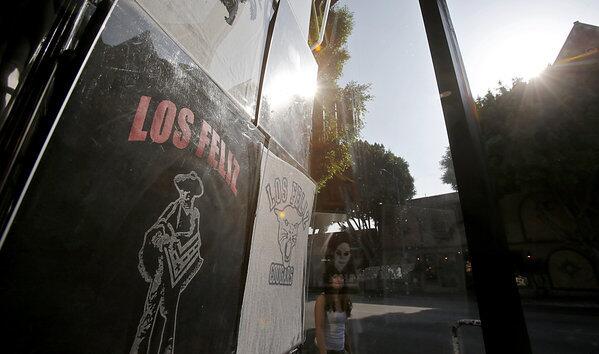
Y-Que Trading Post on Vermont Avenue in Los Feliz specializes in T-shirts with a neighborhood theme. An online poster said she thinks thinks both the “gringo way” and the Spanish pronunciation for Los Feliz are acceptable. (Luis Sinco / Los Angeles Times)
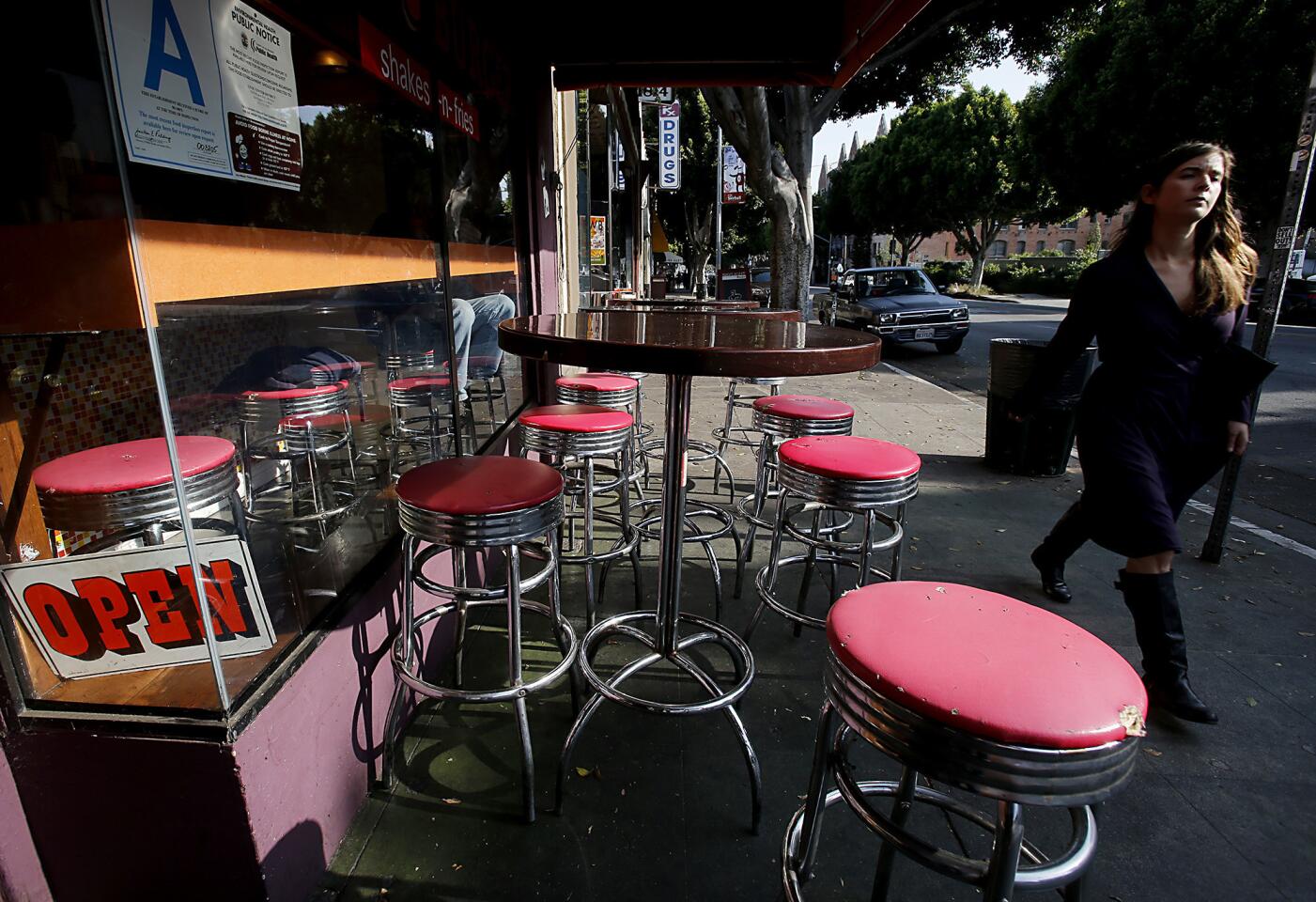
As the Southland gets bigger, more diverse and markedly more Latino, more and more people are grappling with how to pronounce long-botched place names like San Pedro, El Segundo and Los Feliz, above. (Luis Sinco / Los Angeles Times)
Advertisement
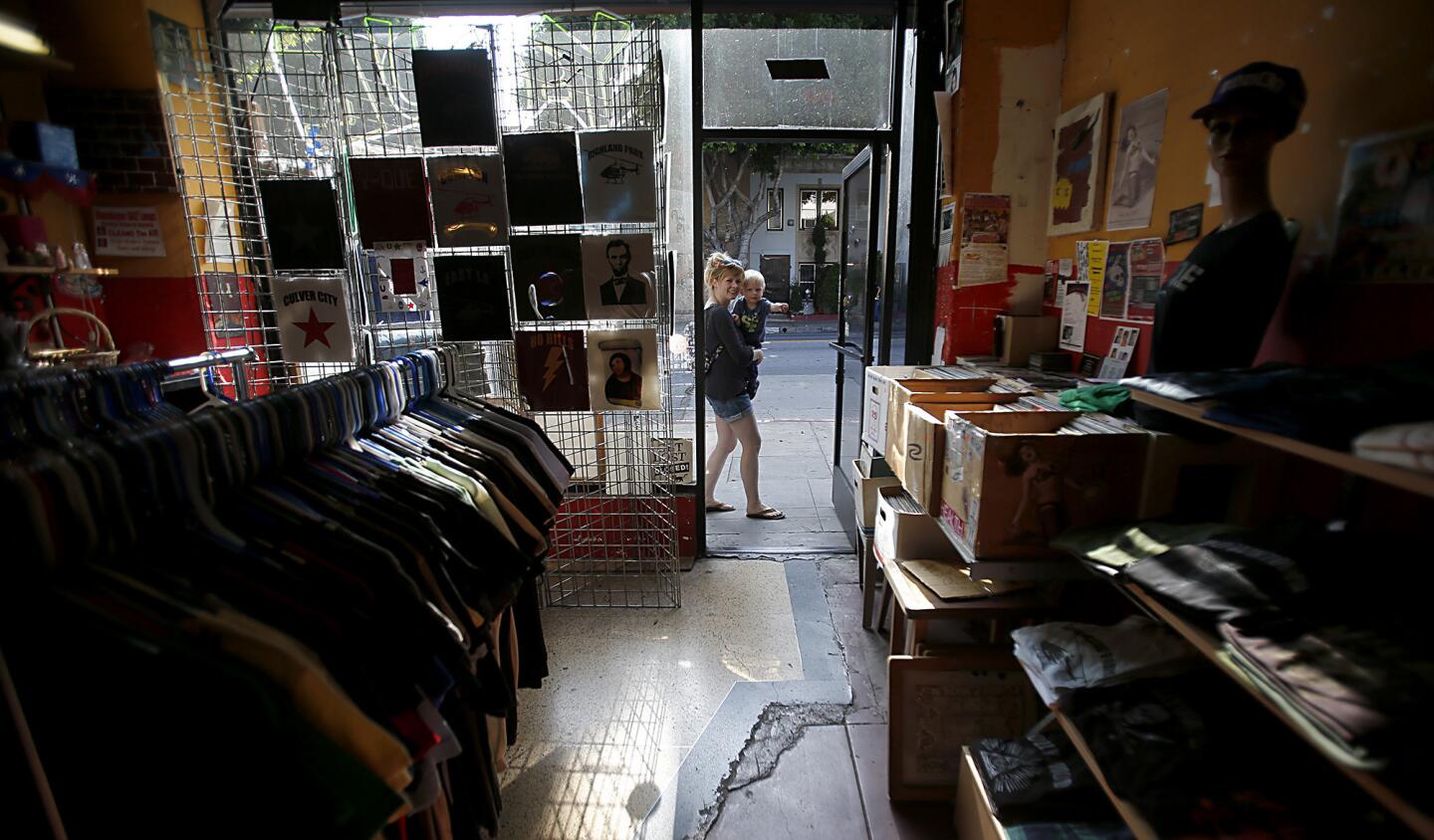
A shop in Los Feliz. In a light-hearted, sad-face-emoticon-punctuated tweet, one woman admitted that she uses “Los FEE-lus” and called herself a “bad Mexican.” (Luis Sinco / Los Angeles Times)
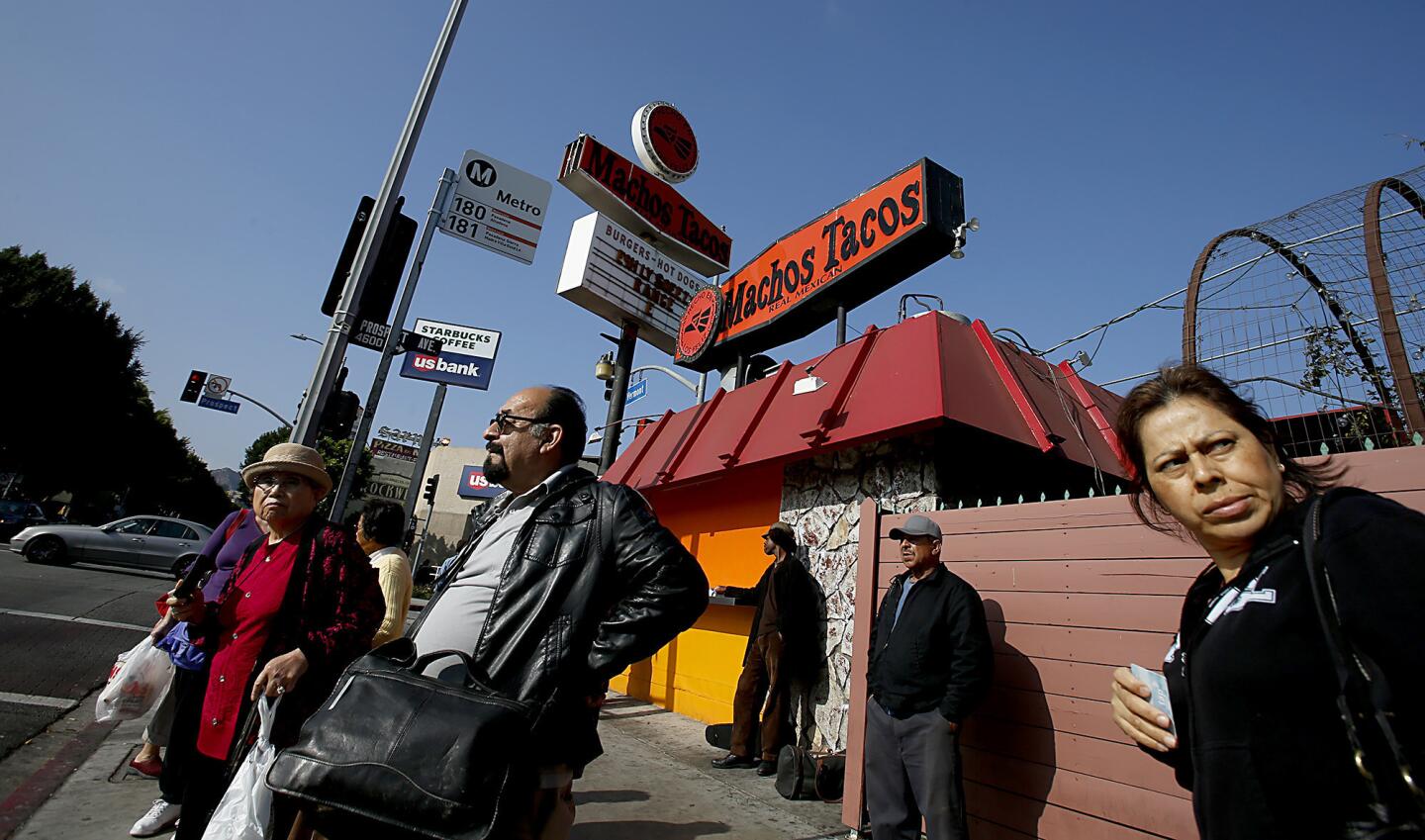
Riders wait for a bus at Vermont and Prospect avenues in Los Feliz, the site of Machos Tacos, a Mexican food stand. Donald Seligman, former president of the Los Feliz Improvement Assn., said he and most longtime residents still anglicize their neighborhood’s name. He thinks pronunciation is about practicality. (Luis Sinco / Los Angeles Times)







